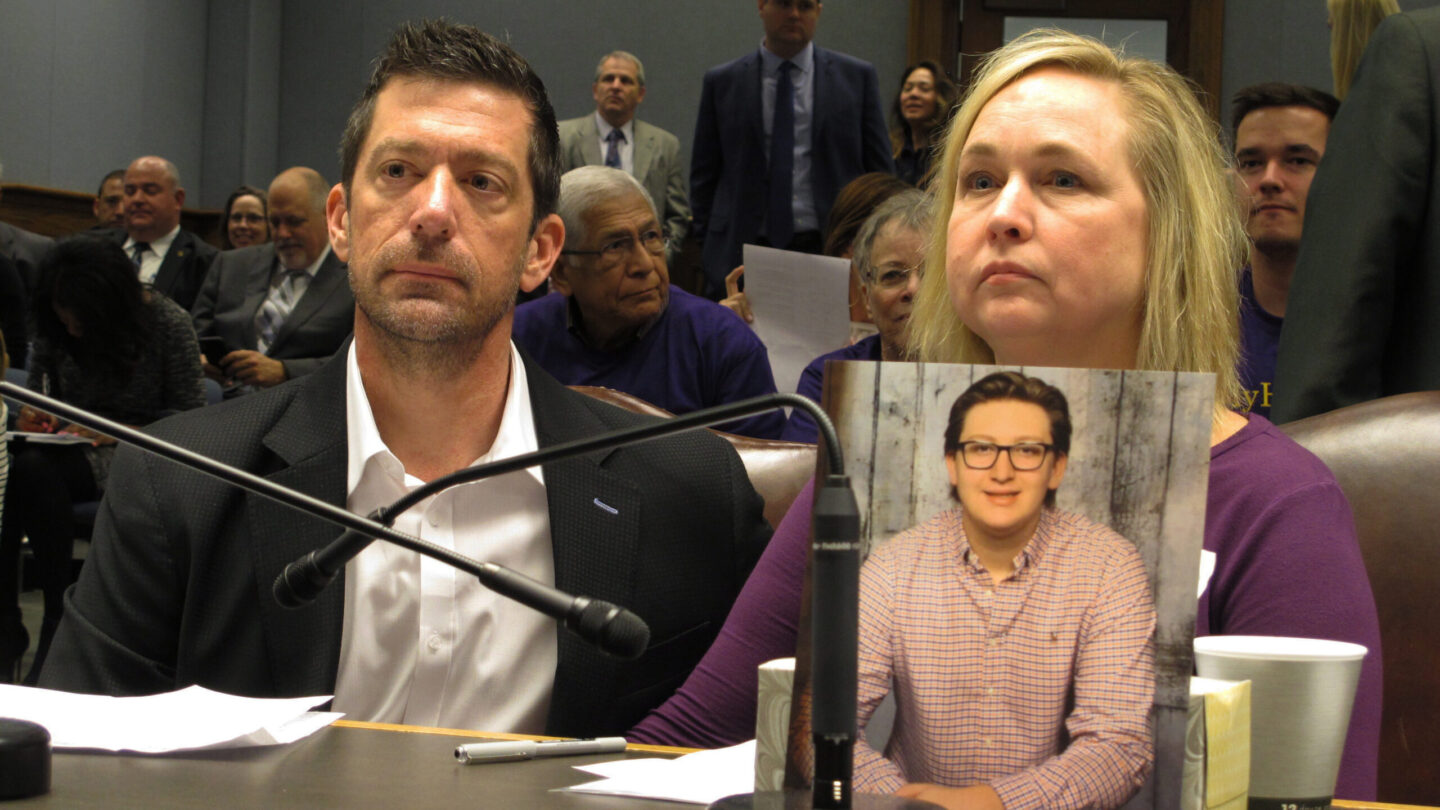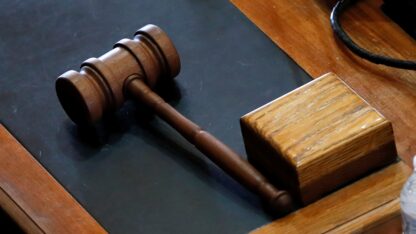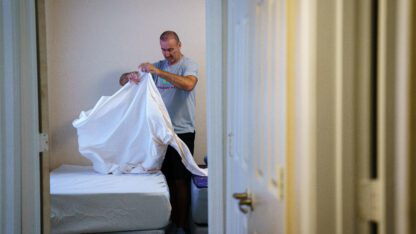A jury’s decision that a Louisiana State University fraternity pledge’s family is entitled to $6.1 million for his hazing-related alcohol death in 2017 sends a powerful message, the family’s attorney said Monday.
Max Gruver, from the Atlanta suburb of Roswell, Georgia, had been at LSU for only a month when he died of alcohol poisoning and aspiration after a hazing ritual at the Phi Delta Theta fraternity house in 2017.
One of the family’s attorneys, Don Cazayoux, said last week’s verdict in Baton Rouge bolsters the family’s campaign against hazing.
“The first message is, don’t do it because you could hurt someone, you could kill someone,” Cazayoux said in a phone interview. The legal exposure, he said, adds to the points parents should make in warning their college-bound students about the dangers of hazing.
The verdict was to some extent symbolic — Gruver’s parents had already reached confidential settlements with the other defendants in the case, including LSU, Phi Delta Theta fraternity and at least 10 other fraternity members.
The lone defendant in last week’s trial, Ryan Isto, was deemed 2% at fault in Gruver’s death — making him responsible for $122,000 in damages.
In 2019, Matthew Naquin, of Fair Oaks Ranch, Texas, was convicted of negligent homicide and sentenced to five years in prison in connection with the Gruver case, but a judge suspended all but 2 1/2 years. Isto and another fraternity member, Sean Paul Gott, pleaded no contest to a misdemeanor charge in connection with the criminal case and were sentenced to 30 days in jail. Gott, who had agreed to a settlement in the civil case, also was deemed 2% at fault in Gruver’s death by the jury.
Naquin, one of the defendants who reached a settlement in the civil case filed by Gruver’s parents, was found by last week’s jury to be 80% at fault in the death.
The university and Phi Delta Theta fraternity also reached settlements. Phi Delta Theta was banned from the LSU campus until at least 2033 as a result of the events leading to Gruver’s death.
Witnesses have said Naquin ordered Gruver to chug a bottle of 190-proof liquor in September 2017. Gruver died the following morning. His blood-alcohol level was 0.495%, more than six times the level considered proof of intoxication in Louisiana drunk driving cases.
Gruver’s parents, Rae Ann and Stephen Gruver, said at the courthouse in Baton Rouge last week that this sends a message to “would-be hazers” to consider their actions, The Advocate reported.
“Think about the dangers of hazing, think about how it can harm people and how you’ll be held accountable,” Stephen Gruver said.









